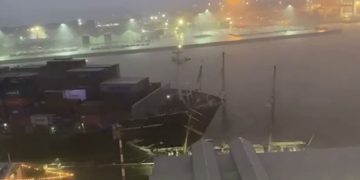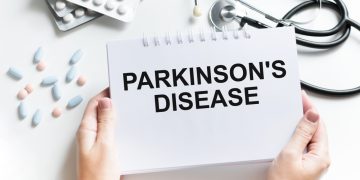On March 23rd, a Memorandum of Understanding (MoU) was signed by DFDS ferry operator, the Port of Dover, the Port of Boulogne Calais and the Port of Dunkerque to work together to decarbonize maritime trade in the Dover Strait.
The last Anglo-French summit decided to intensify cooperation efforts to encourage the creation of green shipping corridors between the two countries in recognition of the crucial relevance of the route. The largest cross-Channel ferry operator on the route, DFDS, together with the Port of Dover, Port Boulogne Calais, and Dunkerque-Port has grasped this momentum to agree a joint program of work that will enable the electrification of maritime traffic on the Channel.
The initiative could result in carbon-neutral cross-Channel shipping by 2030, with zero-emission battery-powered electric ferries and charging stations at ports. This would be a significant step toward the goal of decarbonizing the global maritime sector. In addition to working on its energy strategy, the Port of Dover has made commitments to achieve Carbon Net Zero status for Scopes 1 and 2 by 2025, and Scope 3 by 2030.
Patrice Vergriete, mayor of Dunkirk, said that Dunkirk has the ambition to implement the first French hub dedicated to decarbonization, in all its dimensions. The collective work that was initiated eight years ago with all the economic actors of the territory is today recognized and supported both by the French State and by the European Commission, within the framework of the Territory of Innovation programs, Low Carbon Industry Zones (ZIBAC) or Climate City Contract in particular.
Being a partner in the green transition is a top priority for Europe’s ports. There is no time, no money to lose. Greening the shipping sector is both a technological and financial challenge. The best way to go forward is to think, engage, work and invest together.
… said Isabelle Ryckbost, secretary general of European Sea Ports Organisation (ESPO)
Torben Carlsen, chief executive officer at DFDS stated that the commitment by DFDS and partner ports is an important step toward decarbonising cross-Channel transportation. It reflects the urgency of their decarbonization efforts by committing us to the electrification of maritime traffic on the Channel before 2030.
Following the Clydebank declaration at the COP26 climate summit in 2021, the Port of Dover and its partners declared an ambition to become the world’s first high-volume green shipping corridor.
… said Doug Bannister, chief executive at the Port of Dover
The shared ambition is to move towards carbon neutrality by 2030, which will necessarily involve the design of new generation vessels using propulsion technologies that are more environmentally friendly. The Port of Calais is working with DFDS and its partners to build out the infrastructure to enable environmentally friendly vessels.
… said Benoit Rochet, CEO Port Boulogne Calais
Maurice Georges, CEO, Dunkerque-Port, believes that as the first European energy hub, the Dunkirk industrial-port zone will be there to support this major ambition to create a green corridor. He noted that the initiative is also fully in line with the Dunkirk region’s decarbonization strategy led by the Urban Community of Dunkirk (CUD) and Euraenergy, of which Dunkerque-Port is a partner.































































